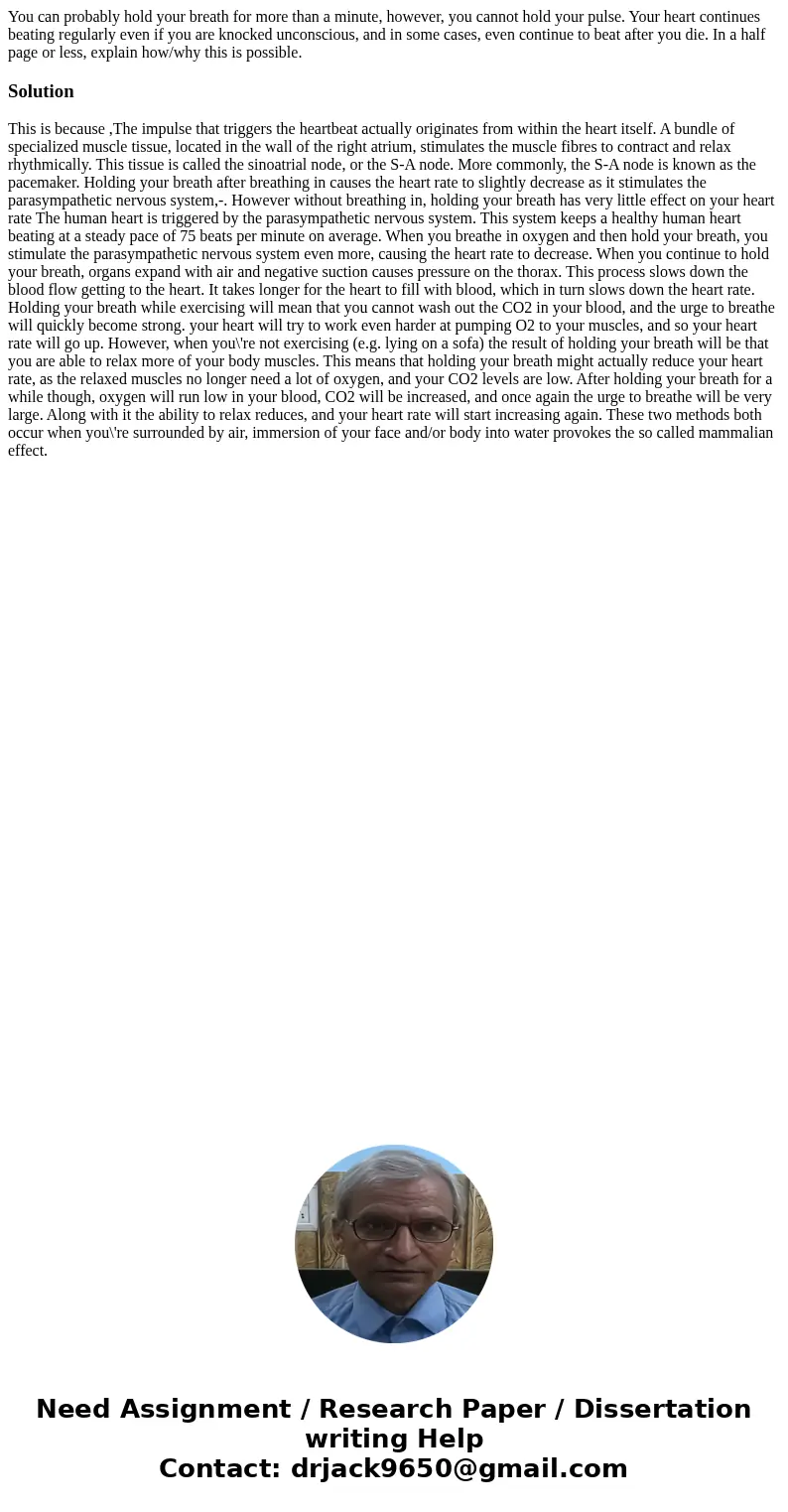You can probably hold your breath for more than a minute how
You can probably hold your breath for more than a minute, however, you cannot hold your pulse. Your heart continues beating regularly even if you are knocked unconscious, and in some cases, even continue to beat after you die. In a half page or less, explain how/why this is possible.
Solution
This is because ,The impulse that triggers the heartbeat actually originates from within the heart itself. A bundle of specialized muscle tissue, located in the wall of the right atrium, stimulates the muscle fibres to contract and relax rhythmically. This tissue is called the sinoatrial node, or the S-A node. More commonly, the S-A node is known as the pacemaker. Holding your breath after breathing in causes the heart rate to slightly decrease as it stimulates the parasympathetic nervous system,-. However without breathing in, holding your breath has very little effect on your heart rate The human heart is triggered by the parasympathetic nervous system. This system keeps a healthy human heart beating at a steady pace of 75 beats per minute on average. When you breathe in oxygen and then hold your breath, you stimulate the parasympathetic nervous system even more, causing the heart rate to decrease. When you continue to hold your breath, organs expand with air and negative suction causes pressure on the thorax. This process slows down the blood flow getting to the heart. It takes longer for the heart to fill with blood, which in turn slows down the heart rate. Holding your breath while exercising will mean that you cannot wash out the CO2 in your blood, and the urge to breathe will quickly become strong. your heart will try to work even harder at pumping O2 to your muscles, and so your heart rate will go up. However, when you\'re not exercising (e.g. lying on a sofa) the result of holding your breath will be that you are able to relax more of your body muscles. This means that holding your breath might actually reduce your heart rate, as the relaxed muscles no longer need a lot of oxygen, and your CO2 levels are low. After holding your breath for a while though, oxygen will run low in your blood, CO2 will be increased, and once again the urge to breathe will be very large. Along with it the ability to relax reduces, and your heart rate will start increasing again. These two methods both occur when you\'re surrounded by air, immersion of your face and/or body into water provokes the so called mammalian effect.
 Homework Sourse
Homework Sourse